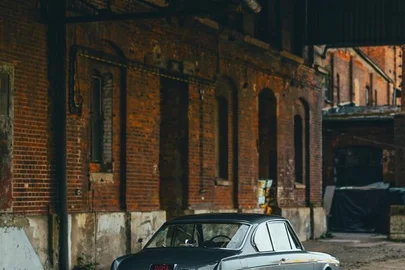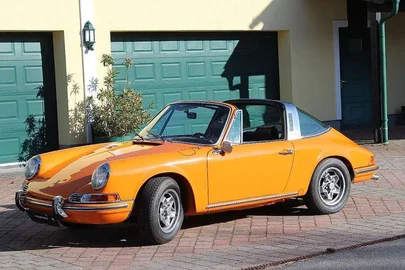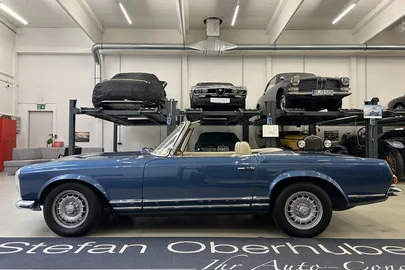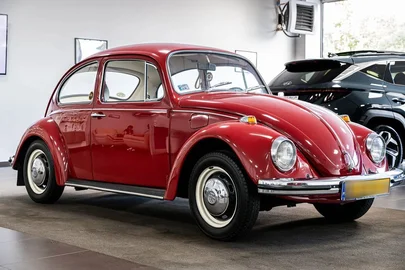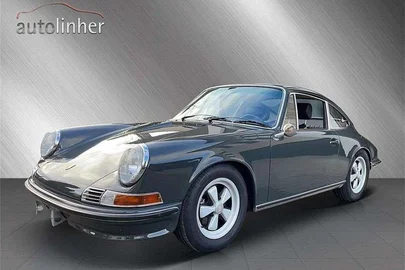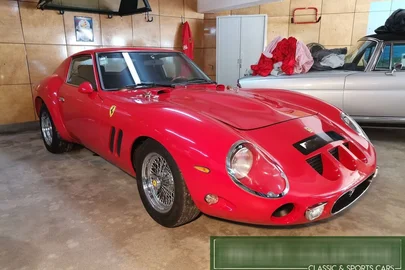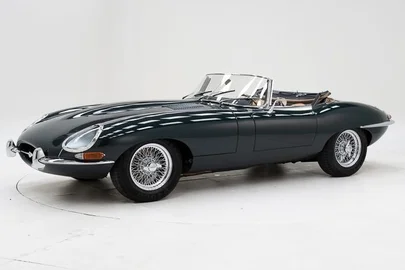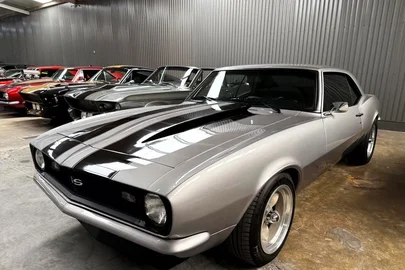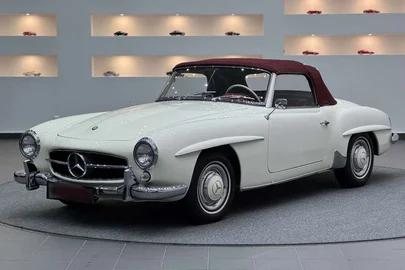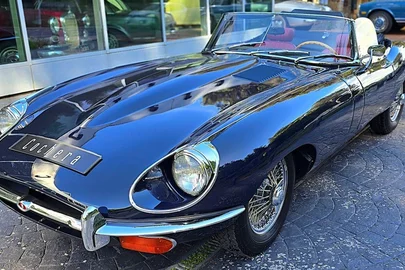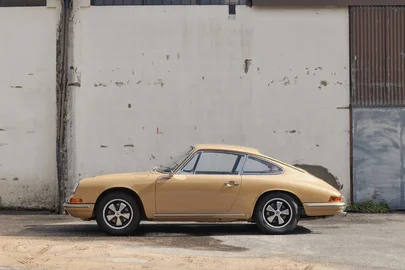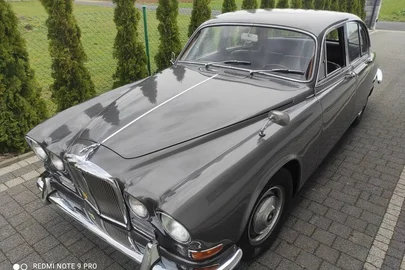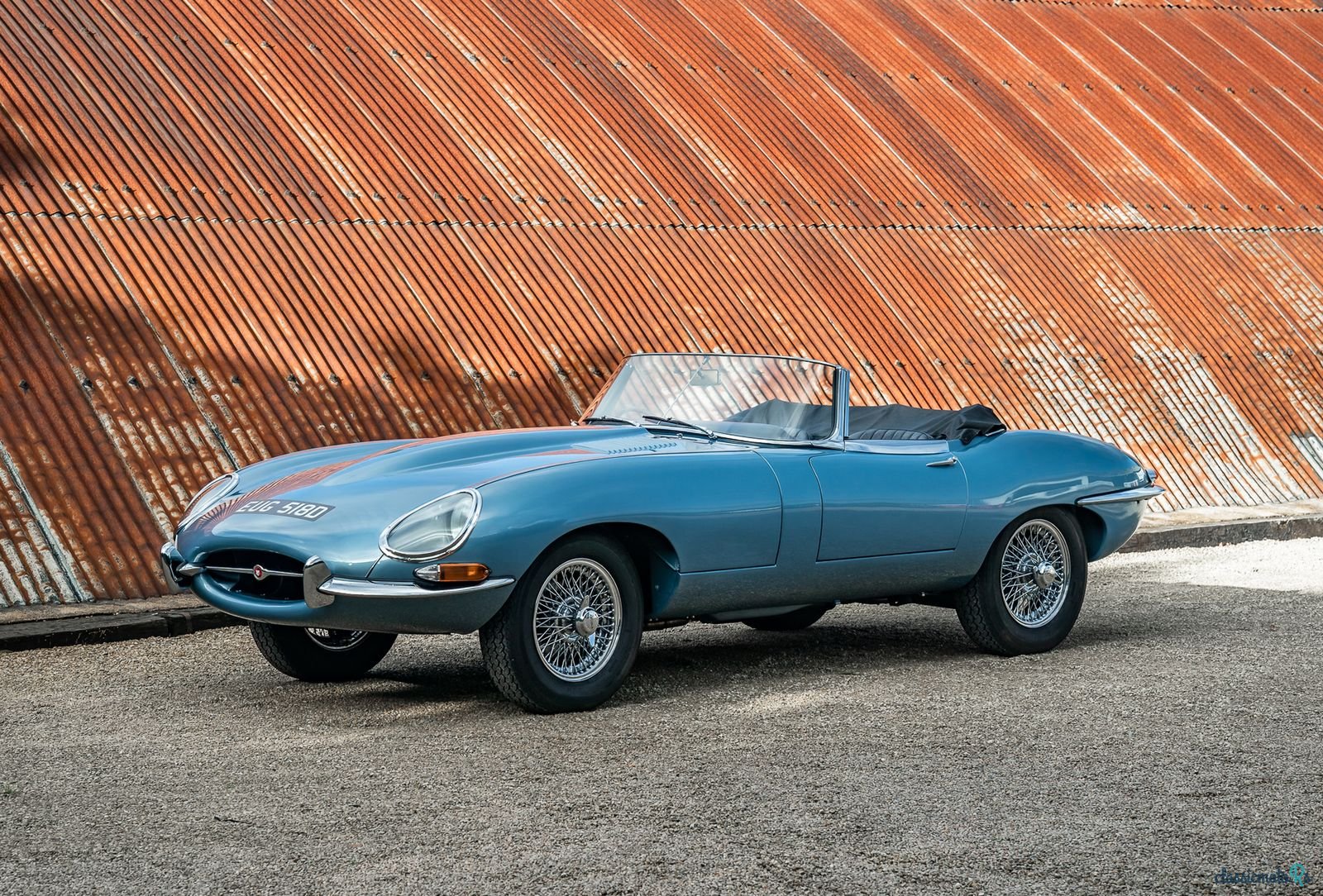
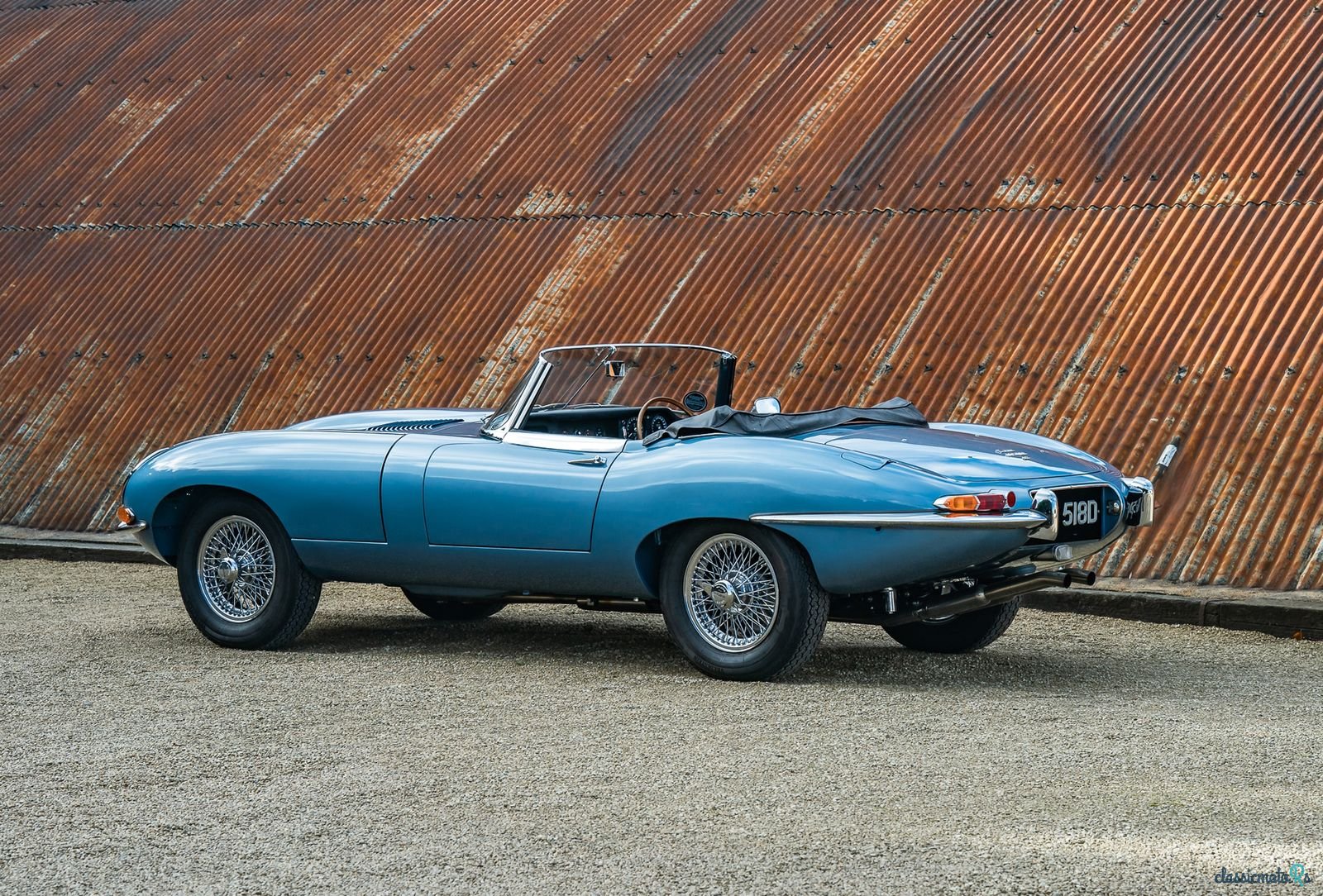
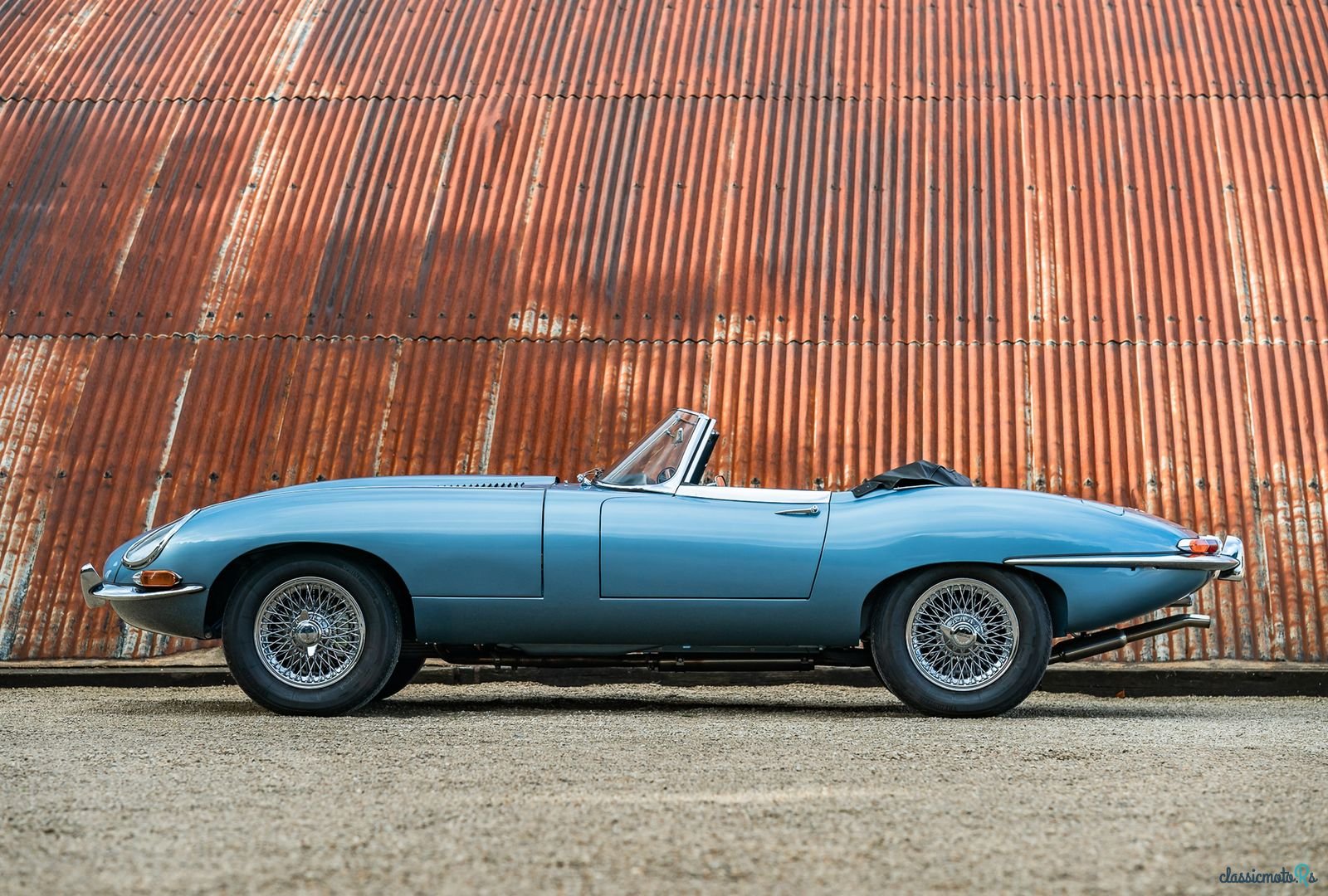
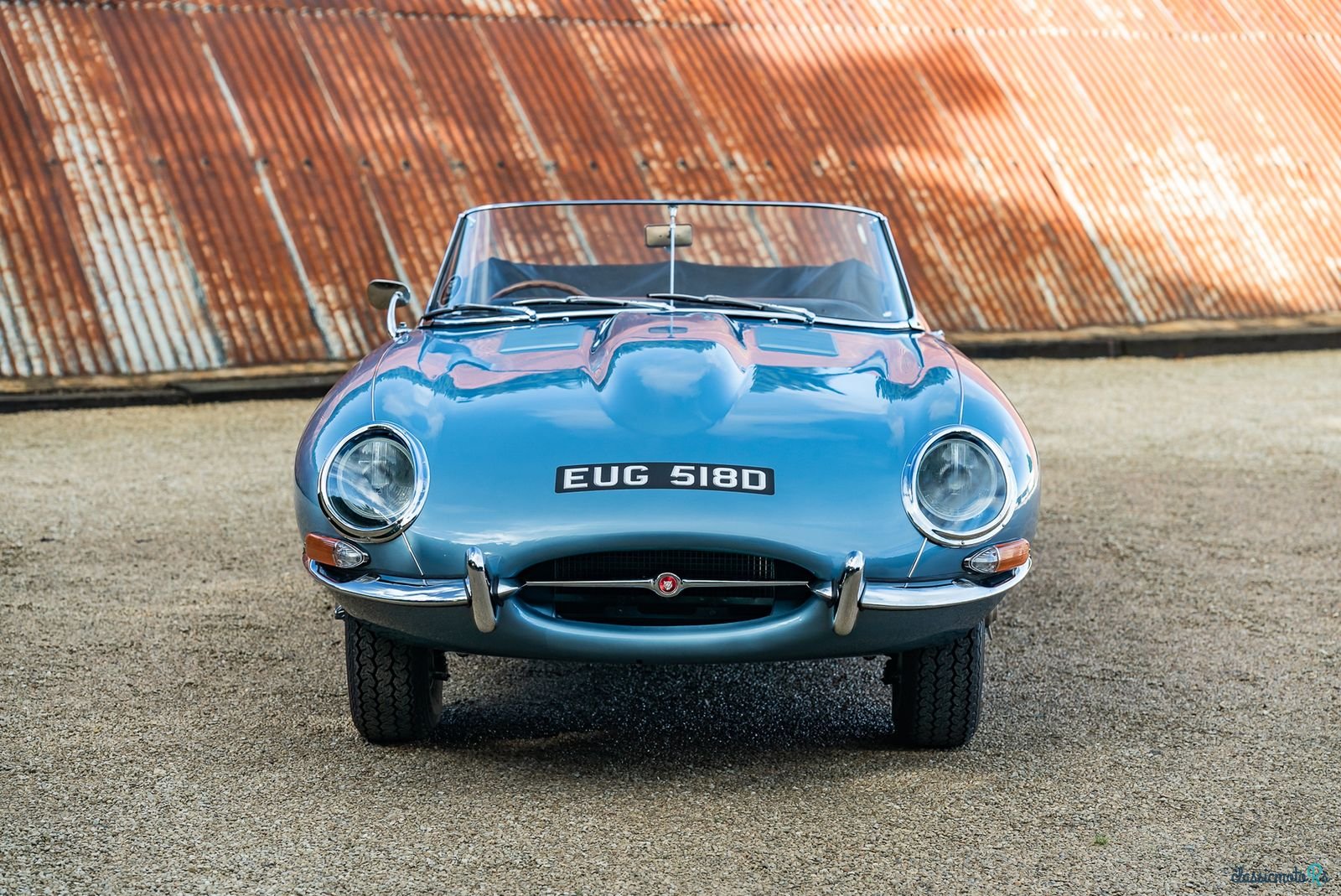
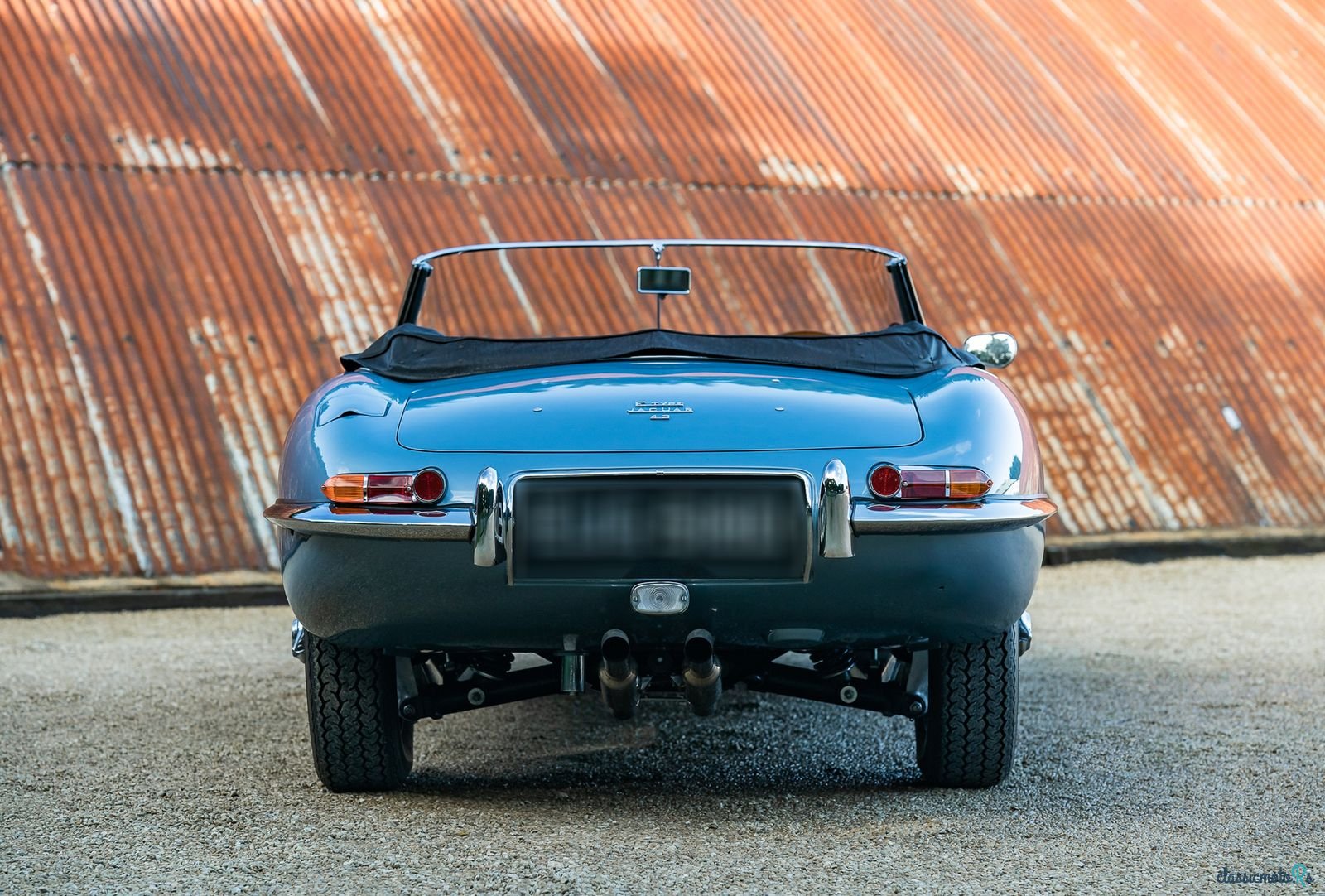
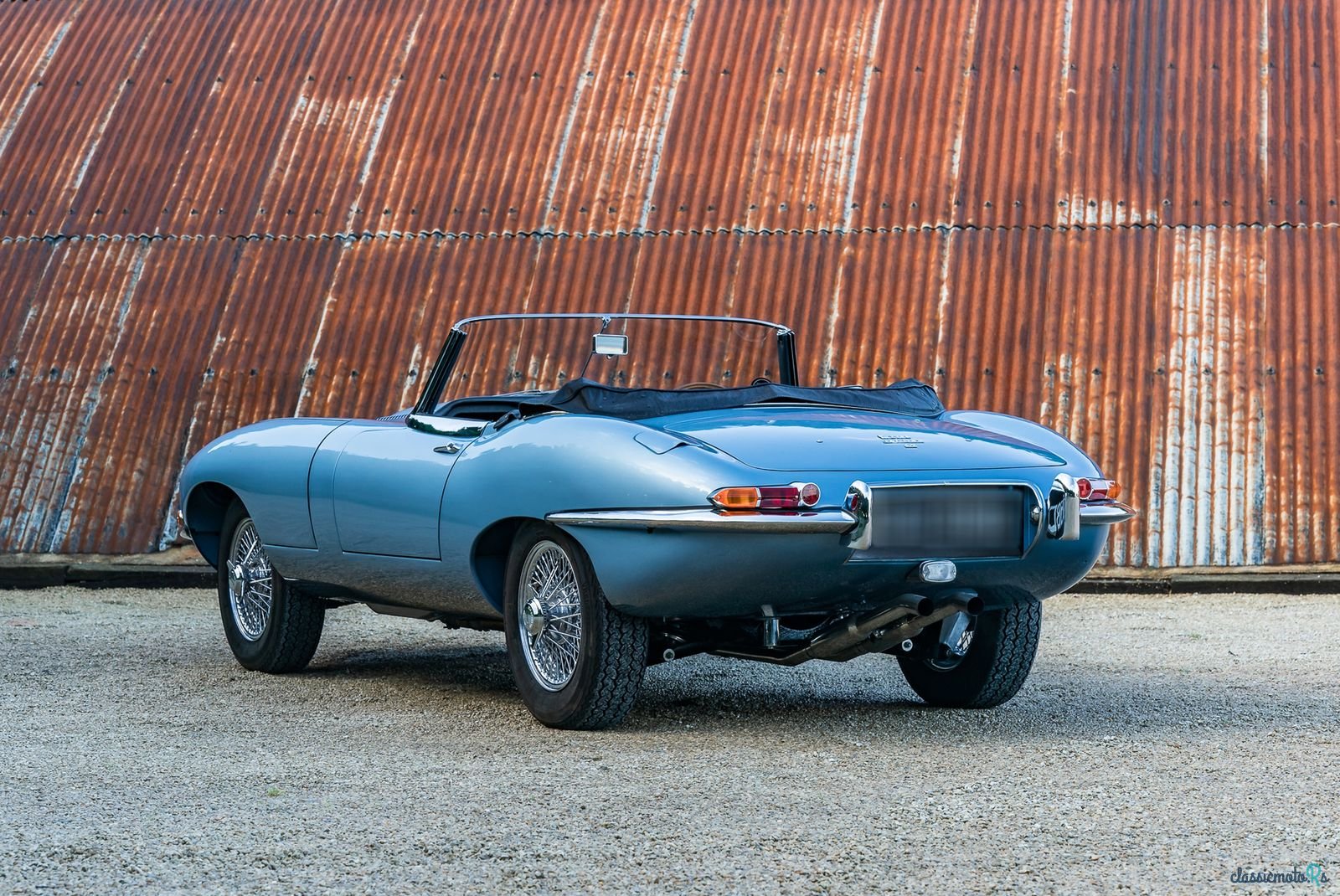
6 photos
1966' Jaguar E-Type
Report This Ad!Rate This!Bookmark This
£149,000Published 14 December 2023ID: KTwHUJ
Expired
2 years, 2 months ago
2 years, 2 months ago
Information from the owner
Age: 57 years
Exterior color: Blue
Exterior: Fog lamps
Electronics: AM/FM Radio
Seller's comments about 1966' Jaguar E-Type
1966 Jaguar E-type Series 1 4. 2 for sale
Original right-hand-drive UK-market car
Two owners from new
Fresh out of a restoration by Dutch marque specialist
As well as boasting only two owners from new, this Series 1 4. 2 OTS has recently come out of a sympathetic restoration that has returned it to exceptional condition while maintaining an impressive level of originality.
Built at the Browns Lane factory on 14 January 1966, chassis number 1E 1446 was dispatched on 9 February to Jaguar Distributors Ltd in Roseville Road, Leeds. Its registration number – EUG 518D, which it still wears to this day – was issued in the city.
Its first owner was a JC Sowray, who lived in Huntington on the northern outskirts of York. The original sales invoice is part of the E-type’s history file and shows that Mr Sowray specified the car with chrome-plated wire wheels (£51 7s 10d), a Motorola radio with twin speakers (£42) that was modified ‘to accept a tape recorder’, a steering lock (£9 10s), and twin Marchal long-range fog lamps (£17 10s).
Not only does the invoice survive, but so too does the Owner’s Service Policy, which shows that the E-type was delivered to Mr Sowray on 1 March. It also shows that the car has retained its original 4. 2-litre straight-six engine (7E 7702-9).
Amazingly, Mr Sowray kept hold of his treasured E-type for more than 40 years, until it passed to a new owner in the Netherlands in 2012. More recently, the car was treated to a full restoration by award-winning marque specialist Avelingen Restoration, which is based in the town of Gorinchem.
That process was completed in April 2023 and while the E-type now presents beautifully in its original colour of Opalescent Silver Blue, the decision was made to not touch the wonderfully original Dark Blue seats. Now wearing an irreplaceable patina, they’re an indication of the care and consideration with which the restoration was carried out.
Now being offered for sale at The Classic Motor Hub, this UK-market right-hand-drive Jaguar E-type Series 1 has been coveted by its two owners and retains its matching-numbers status. Various improvements made to the 4. 2-litre cars make them, in the view of many enthusiasts, more comfortable and useable than the earlier 3. 8 while retaining the purity of its looks – and this car perfectly embodies all of those qualities.
MODEL HISTORY
Jaguar was almost constantly modifying the E-type since its sensational launch at the 1961 Geneva Motor Show, and the biggest round of upgrades for the Series 1 came in 1964.
The fundamentals remained the same as they’d always been – a monocoque centre section with a subframe carrying the engine and front suspension. At the rear, independent suspension was fitted at a time when many of Jaguar’s rivals still employed a traditional live axle, and disc brakes were used all round.
The engine, too, was still the well-proven twin-overhead-camshaft XK unit, but increasing the bore from 87mm to 92mm gave an overall capacity of 4235cc. Power was unchanged at a claimed 265bhp, but there was a boost in torque to 283lb ft.
A more powerful brake servo was fitted in order to reduce pedal effort, new bucket seats replaced the much-criticised originals and were significantly more comfortable, and an alternator replaced the dynamo. Last but very much not least, Jaguar’s own all-synchromesh four-speed gearbox – which had been in development since 1961 – replaced the elderly Moss unit and was universally praised as being a considerable improvement.
One thing that fortunately didn’t change was the E-type’s timelessly elegant shape. Among the very few distinguishing external features was the addition of a ‘4. 2’ badge at the rear, and this updated model continued to be known as the Series 1. Not until 1968 did the considerably facelifted Series 2 arrive.
Even Motor Sport correspondent Denis Jenkinson – no fan of the early 3. 8 E-type – was impressed, and ran a Series 1 4. 2 for 120, 000 miles. ‘It was an exceptional car,’ he once said. ‘It was a totally reliable touring car and so effortless, long-legged and relaxed.’
As before, the 4. 2 Series 1 was offered as both a Roadster and a Fixed-Head Coupé, and a long-wheelbase 2+2 model was added to the range in 1966. When The Motor tested a 4. 2 Roadster in October 1964, it said that, ‘at £2000 it creates its own unique position among the world’s most desirable cars with a combination of performance, handling, looks and refinement that … is still unequalled at this price.’
Original right-hand-drive UK-market car
Two owners from new
Fresh out of a restoration by Dutch marque specialist
As well as boasting only two owners from new, this Series 1 4. 2 OTS has recently come out of a sympathetic restoration that has returned it to exceptional condition while maintaining an impressive level of originality.
Built at the Browns Lane factory on 14 January 1966, chassis number 1E 1446 was dispatched on 9 February to Jaguar Distributors Ltd in Roseville Road, Leeds. Its registration number – EUG 518D, which it still wears to this day – was issued in the city.
Its first owner was a JC Sowray, who lived in Huntington on the northern outskirts of York. The original sales invoice is part of the E-type’s history file and shows that Mr Sowray specified the car with chrome-plated wire wheels (£51 7s 10d), a Motorola radio with twin speakers (£42) that was modified ‘to accept a tape recorder’, a steering lock (£9 10s), and twin Marchal long-range fog lamps (£17 10s).
Not only does the invoice survive, but so too does the Owner’s Service Policy, which shows that the E-type was delivered to Mr Sowray on 1 March. It also shows that the car has retained its original 4. 2-litre straight-six engine (7E 7702-9).
Amazingly, Mr Sowray kept hold of his treasured E-type for more than 40 years, until it passed to a new owner in the Netherlands in 2012. More recently, the car was treated to a full restoration by award-winning marque specialist Avelingen Restoration, which is based in the town of Gorinchem.
That process was completed in April 2023 and while the E-type now presents beautifully in its original colour of Opalescent Silver Blue, the decision was made to not touch the wonderfully original Dark Blue seats. Now wearing an irreplaceable patina, they’re an indication of the care and consideration with which the restoration was carried out.
Now being offered for sale at The Classic Motor Hub, this UK-market right-hand-drive Jaguar E-type Series 1 has been coveted by its two owners and retains its matching-numbers status. Various improvements made to the 4. 2-litre cars make them, in the view of many enthusiasts, more comfortable and useable than the earlier 3. 8 while retaining the purity of its looks – and this car perfectly embodies all of those qualities.
MODEL HISTORY
Jaguar was almost constantly modifying the E-type since its sensational launch at the 1961 Geneva Motor Show, and the biggest round of upgrades for the Series 1 came in 1964.
The fundamentals remained the same as they’d always been – a monocoque centre section with a subframe carrying the engine and front suspension. At the rear, independent suspension was fitted at a time when many of Jaguar’s rivals still employed a traditional live axle, and disc brakes were used all round.
The engine, too, was still the well-proven twin-overhead-camshaft XK unit, but increasing the bore from 87mm to 92mm gave an overall capacity of 4235cc. Power was unchanged at a claimed 265bhp, but there was a boost in torque to 283lb ft.
A more powerful brake servo was fitted in order to reduce pedal effort, new bucket seats replaced the much-criticised originals and were significantly more comfortable, and an alternator replaced the dynamo. Last but very much not least, Jaguar’s own all-synchromesh four-speed gearbox – which had been in development since 1961 – replaced the elderly Moss unit and was universally praised as being a considerable improvement.
One thing that fortunately didn’t change was the E-type’s timelessly elegant shape. Among the very few distinguishing external features was the addition of a ‘4. 2’ badge at the rear, and this updated model continued to be known as the Series 1. Not until 1968 did the considerably facelifted Series 2 arrive.
Even Motor Sport correspondent Denis Jenkinson – no fan of the early 3. 8 E-type – was impressed, and ran a Series 1 4. 2 for 120, 000 miles. ‘It was an exceptional car,’ he once said. ‘It was a totally reliable touring car and so effortless, long-legged and relaxed.’
As before, the 4. 2 Series 1 was offered as both a Roadster and a Fixed-Head Coupé, and a long-wheelbase 2+2 model was added to the range in 1966. When The Motor tested a 4. 2 Roadster in October 1964, it said that, ‘at £2000 it creates its own unique position among the world’s most desirable cars with a combination of performance, handling, looks and refinement that … is still unequalled at this price.’
